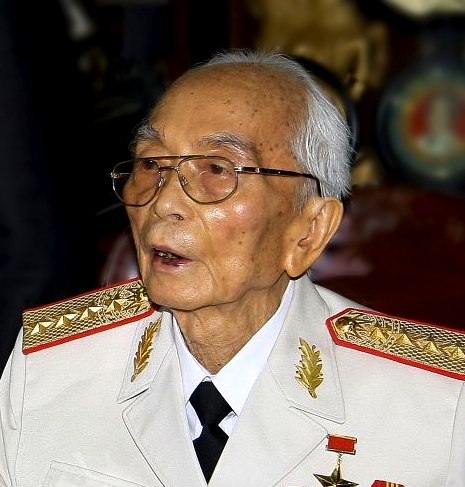Source: People’s War, People’s Army (1962), pp. 4-5
Contexte: In August 1945, the capitulation of the Japanese forces before the and the Allied forces, put an end to the world war. The defeat of the German and Nippon fascists was the beginning of a great weakening of the capitalist system. After the great victory of the Soviet Union, many people's democracies saw the light of day. The socialist system was no longer confined within the frontiers of a single country. A new historic era was beginning in the world. In view of these changes, in Viet Nam, the Indo-chinese Communist Party and the Viet Minh called the whole Vietnamese nation to general insurrection. Everywhere, the people rose in a body. Demonstrations and displays of force followed each other uninterruptedly. In August, the Revolution broke out, neutralising the bewildered Nippon troops, overthrowing the pro-Japanese feudal authorities, and installing people's power in Hanoi and throughout the country, in the towns as well as in the countryside, in Bac Bo as well as in Nam Bo. In Hanoi, the capital, in September 2nd, the provisional gouvernment was formed around President Ho Chi Minh; it presented itself to the nation, proclaimed the independence of Viet Nam, and called on the nation to unite, to hold itself in readiness to defend the country and to oppose all attempts at imperialist aggression. The Democratic Republic of Viet Nam was born, the first people's democracy in South-east Asia. But the imperialists intended to nip the republican regime in the bud and once again transform Viet Nam into a colony. Three weeks had hardly gone by when, on September 23rd, 1945, the French Expeditionary Corps opened fire in Saigon. The whole was to be carried on for nine years at the cost of unprecedented heroism and amidst unimaginable difficulties, to end by the shining victory of our people and the crushing defeat of the aggressive imperialists at Dien Bien Phu.... Never before had there been so many foreign troops on the soil of Viet Nam. But never before either, had the Vietnamese people been so determined to rise up in combat to defend their country.
Võ Nguyên Giáp citations
Võ Nguyên Giáp, né le 25 août 1911 à An Xá et mort le 4 octobre 2013 à Hanoï, à l'âge de 102 ans, est un général et homme politique vietnamien. Chef de l'Armée populaire vietnamienne pendant la guerre d'Indochine et ministre de la défense du Nord Viêt Nam durant la guerre du Viêt Nam, il est le seul général ayant vaincu à la fois l'armée française, l'armée américaine, l'armée chinoise et l'armée Khmer rouge, au cours de sa vie.
Il est connu pour être le vainqueur de la bataille de Ðiện Biên Phủ , qui a sonné la défaite et le départ des Français d'Indochine.
Le général Vo Nguyên Giap est entré dans l’histoire militaire et les études militaires et stratégiques de son vivant, admiré par ses amis et ennemis, dont le général français Raoul Salan et le général américain William Westmoreland. « Général autodidacte », selon ses propres termes, il n'a suivi les cours d'aucune académie militaire.
Wikipedia
